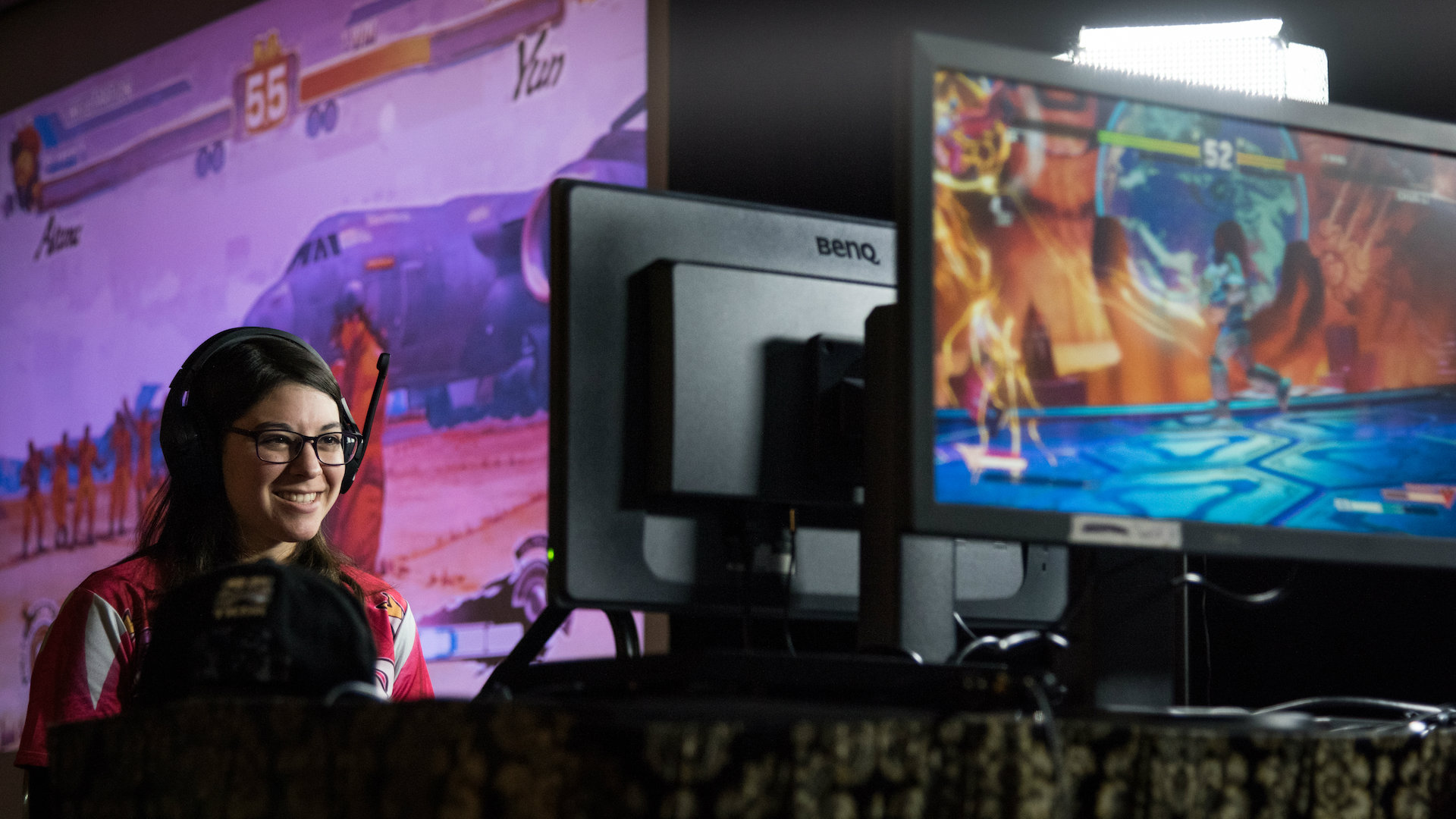Inside the esports boom
Competitive video gaming is expected to hit $1B in global revenue this year. Here's how the industry plays in Colorado's economy and classrooms.

Want to get in early on the industry attracting investment from the likes of Drake, Michael Jordan, Diddy and Denver Nuggets owner Stan Kroenke? Better practice your video games.
Competitive video gaming, or esports, is exploding across the globe, with revenue expected to eclipse $1 billion this year, according to a recent report by esports analytics firm Newzoo. Total global esports revenue may hit $1.8 billion by 2022, the report predicted.
The emergence of this hybrid entertainment-sports-tech industry isn’t just a virtual phenomenon – the segment is now spawning innovation in Colorado’s economy and universities.
Last December, Philadelphia-based N3rd Street Gamers opened Localhost esports arena in Lakewood. The 18,000-square-foot facility offers 120 custom-built gaming PCs, video game consoles like Xbox Ones, PlayStation 4s and Nintendo Switches and a 60-foot stage for events and tournaments.
Metropolitan State University of Denver, meanwhile, has a full esports intramural program, hosting tournaments for video games such as Madden NFL 19, NBA 2K19, and Fortnite Battle Royale. The University’s Department of Human Performance and Sport is also positioning itself for the esports boom, integrating esports into existing curriculum so that students are equipped to go into the growing industry.
“($1 billion) is a massive amount of money for an activity that a lot of people don’t even know is going on,” said N3rd Street Gamers communications director James Love. “Video gaming is sometimes seen as an activity that you do in the basement with your friends, but now it’s a pathway to a career.”
Out of the basement, into the classroom
The convergence of sports and technology is the subject of the MSU Denver course Technology and Social Media in Sport, developed by Nicole Furuiye, a lecturer in the University’s Department of Human Performance and Sport. Last fall semester, an esports section was for the first time added to the course.
“(Esports) is huge internationally and it’s just kicking off here in the United States,” said Furuiye, who brings more than 20 years of experience with the NBA, NFL and ESPN to MSU Denver. “Now that the NBA and all these leagues are starting to get involved in it, people are starting to pay attention to it more.”
The NBA became the first American professional sports organization to create an esports league last year when it launched NBA 2K League in partnership with Take-Two Interactive Software, the publicly traded company behind the popular NBA 2K video game franchise. Each team in the 21-team league is run by an NBA franchise and features gamers who play NBA 2K19 as avatar versions of themselves.

At the conclusion of the fall 2018 Technology and Social Media course taught by faculty member Jonathan Horowitz, students were surveyed about their favorite aspects of the class. Just about everybody listed the esports section as a highlight of the semester, which didn’t surprise Horowitz.
One of the semester’s most engaging discussions was whether or not esports should be classified as a sport, he said. On one side, the argument against esports as sport focused on its lack of physical activity. On the other hand, the argument for esports as sport considered the volume of training required to achieve success in esports.
Esports leagues operate in a similar fashion as traditional sports leagues, Horowitz said, and certain mental attributes are required for esports players that are also valuable for traditional athletes.
“It’s a whole different animal, and I don’t have the answers,” he said. “I see both sides of it, and it’s amazing to see the impact it has had in such a short time in the U.S.”
Something else esports shares with traditional sports: passionate viewers. The global esports audiance — those that watch esports at arenas or via internet streaming services such as Twitch — will grow to 453.8 million in 2019, according to Newzoo.
“Esports’ impressive audience and viewership growth is a direct result of an engaging viewership experience untethered to traditional media,” Newzoo CEO Peter Warman explained in the report.
Video game console to career
MSU Denver Sports Management major Lorenzo Rodriguez has a busy schedule to say the least.
When he’s not on the field playing for the school’s soccer team or in the classroom working for that degree, Rodriguez is the U.S. general manager for ProSoc ESPORTS. The Germany-based organization bills itself as a bridge between sports and esports. Oh, yeah – he’s also a competitive Overwatch player, a team-based shooting game developed by Blizzard Entertainment.
One of his roles at ProSoc involves helping American esports players find college scholarships and aid to continue their education and esports career. ProSoc is going to be at the forefront of connecting players with available scholarships, Rodriguez said.
The National Association of Collegiate Esports, the governing body of collegiate esports, counts more than 130 member schools and 3,000 student-athletes. Its data show that some $15 million in scholarships and financial aid has been doled out to American gamers.
“As a company, we’re just testing the water, just like other companies that enter esports,” he said.
Rodriguez envisions using his Sports Management degree to grow with the esports industry into a role in tour management and athlete marketing. Based on Newzoo’s data, he’s entering a lucrative field: North America will be the largest esports market in 2019, with revenues exceeding $409 million and expected to hit $691 million by 2022.
“I want to translate everything I know from playing soccer at MSU Denver into esports and combine that, my degree and experience in esports to be a player representative,” he said.







